Geraki, Elis
| Geraki Γεράκι | |
|---|---|
 Geraki | |
| Coordinates: 37°48′N 21°24′E / 37.800°N 21.400°ECoordinates: 37°48′N 21°24′E / 37.800°N 21.400°E | |
| Country | Greece |
| Administrative region | West Greece |
| Regional unit | Elis |
| Municipality | Ilida |
| Municipal unit | Amaliada |
| Population (2011)[1] | |
| • Rural | 501 |
| Community[1] | |
| • Population | 614 (2011) |
| Time zone | EET (UTC+2) |
| • Summer (DST) | EEST (UTC+3) |
| Vehicle registration | ΗΑ |
Geraki (Greek: Γεράκι) is a village and a community in the municipal unit of Amaliada, Elis, Greece. It is situated in low hills, 4 km east of Amaliada, 7 km northwest of Vounargo and about 14 km northwest of Pyrgos. In 2001 Geraki had a population of 501 for the village and 614 for the community, which includes the small village Analipsi.
Population
| Year | Village population | Municipal district population |
|---|---|---|
| 1981 | 664 | - |
| 1991 | 500 | - |
| 2001 | 583 | 716 |
| 2011 | 501 | 614 |
History
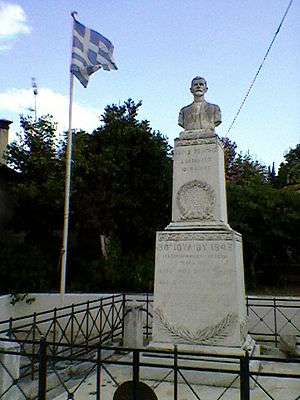
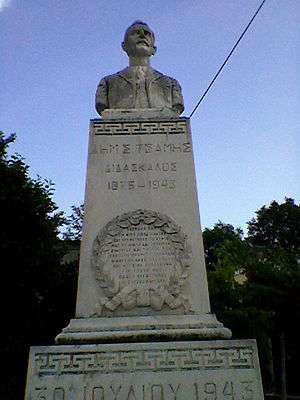
The first settlements in Geraki date from the middle of the 19th century, and the original inhabitants came from the Mani Peninsula in southern Peloponnese.
During the Second World War, Geraki was burned down by the Germans occupiers (in 1943) because it harboured a strong movement of resistance to the occupation. Only the school and the Orthodox church were saved from the fire. In the main square of the village can be found a monument to Dimitris Tsamis, who in 1943 helped to save the lives of 80 inhabitants of Geraki by refusing to denounce them to the occupiers. After the war, the village was entirely reconstructed thanks to the solidarity and cooperation of the inhabitants.
Economy
Geraki's economy is based mainly on farming. The most common crops are grapes, olives, tomatoes, beans. Raisins and wine are also produced in Geraki. The village has two cafes, two grill houses and one mini-market, all located around the central square. Three olive presses specialised in the production of olive oils are also based in the village.
Notable buildings
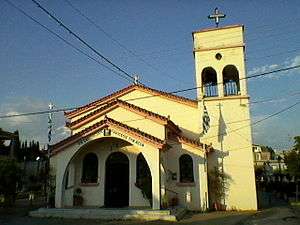
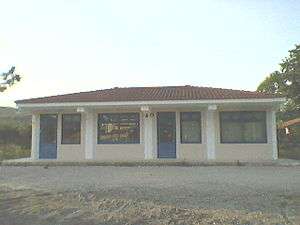
Geraki has an Orthodox church which is dedicated to the Saint Trinity (Aghia Triada).
The village also has its own school, faced by a huge olive tree and by a small playground.
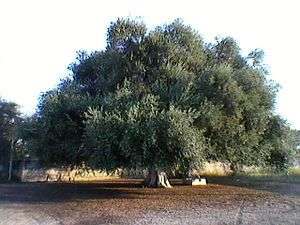
External links
See also
References
- 1 2 "Απογραφή Πληθυσμού - Κατοικιών 2011. ΜΟΝΙΜΟΣ Πληθυσμός" (in Greek). Hellenic Statistical Authority.
